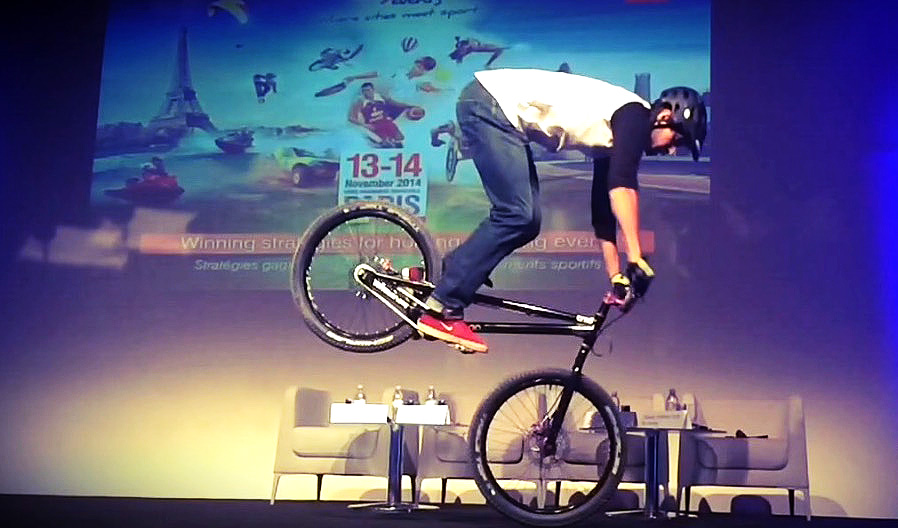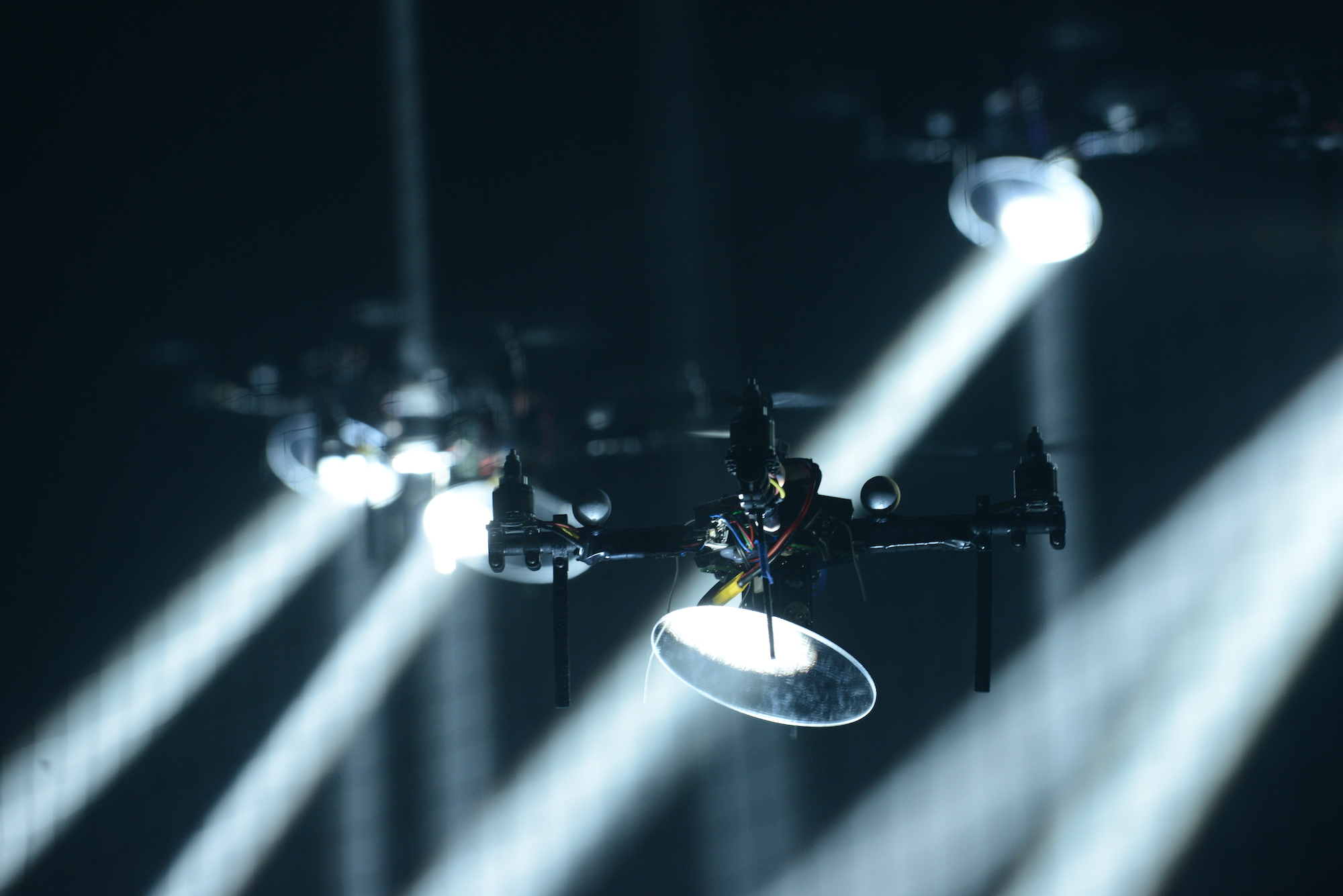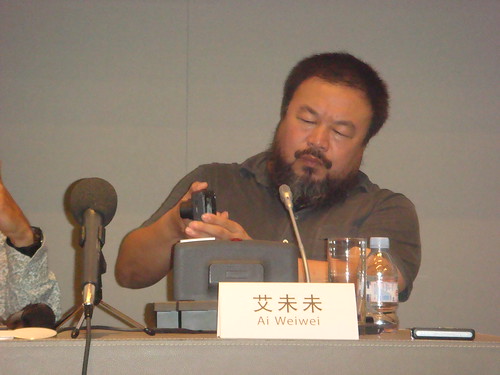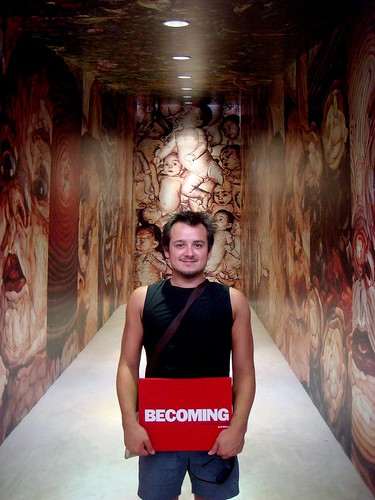BCN2004, InfoDialogue
From May 19 to 21, 2004
Information. Power and Ethics in the 21st Century
Program
Wednesday, May 19
From 8.00 AM
Accreditation of participants (participants may choose to register for one, two or three days).
10.45-11.30
Opening Ceremony
Jaume Pagès, CEO of the Universal Forum of Cultures – Barcelona 2004.
Joan Brunet, Acting Dean of the Catalonian Journalists Association.
Elisenda Roca, Vice-Dean of the Catalonian Journalists Association and President of the Association’s Forum Commission.
Manuel Campo Vidal, Dialogue Director.
McBride Report
- freedom of info is sine qua non communication
Ethics should be keystone of our profession
Iraqi pictures –without cell phones or digital camera, would not have had this info.
Have been no vitos against groups. Total freedom in this dialogue. EMPHASISES.
Forum gave budget for 30 speakers, but found this was not enough – needed more speakers
- we will have 121 communications over next 3 days.
Mustapha Masmoudi, writer of the McBride report.
- emphasised ethics
11.30-13.00
Opening face-to-face session: Information and Misinformation in the Wake of 9/11
Opening
- though moving towards info soc, is inc. stratification
Manuel Castells, Sociologist, Senior Lecturer at the Open University of Catalonia (UOC).
- Links between info, media, and power, since 9/11
- Main links between politics and media
o In info age, politics (broad) play preponderant role in media
o Politics decided in media (not that media decide), but where the links between worlds of power are generated (presence and absence, on and off)
o Present in media are materials with which we build our opinions, what isn’t there isn’t something we build upon
o Sole material on which can elaborate is info that is received through media (collective comm. Processes)
o What is imp is not direct messages, but subliminal ones
o Certain versions of facts become important
o Negative messages 5 times more powerful than positive
- Day to day praxis, disting between amateur and professionals
- Journalists have complex task
- 3 separate strategies for 3 different audiences
o independence (not for prof ethics or dignity, but because cannot be autonomy without it)
o tension between sensationalism and rigorousness: in search for prestige and enhance negotiating influence, this means that is tension between info that can improve career (scoops, etc – more negative), bad news is the only news, in conflict with seriousness
o keep your job: how make this compatible for scoop and search for independence
- media companies need to sell, of course –not necessarily earn money (for votes)
- also media companies want an impact on area of comm.
- From media company’s perspective, basic tension between carrying out task to have influ to sell and apply interest and retaining credibility
o If lose credibility, are devirtued – deprived of characs
- What is analytical context between power and media
- Varies between countries (institioanly, commercially)
- First, most countries, main point of media is direct or indirect control ofgovernment of media
o In Spain, control by gov or govs
- How have public sector tv that is not governmental tv?
- Need statute for independence of public sector media
o In countries like England before Blair, BBC was upto a point was good model, but in most other countries, certainly including spain, this matter is unsolved
o In recent years Spanish tv has broken all records of prestige (or is it opposite)
- Having a media that is controlled is something that people have endeavoured to resolve
o So called Berlesconi model
• Ie. If I have my own stations, etc, then solve credibility problem
• Prevent people from watching anything else, but clearly more complex than this – lead to political crisis
o Franco – got info out of regime and not from Pirenaico station
- Murdoch group leading example of giving specific view
o Chosen to go for conservative sector
o As little info as possible and as much manipulation as possible
• Particularly for Fox News in US (a patriotic medium) and will eject any journalist who dissents
- Links between politics and media are complex
- Sometimes change in gov that means media must accept more pluralism
- Pluralism of info and constant management of medium’s credibility and respect for prof independence, are critical
- As such, here big q is how produce industry that can represent interest of country and yet be credible
- Of course, is subtext – there is no company whose interest is pure
o Doesn’t exist, empirically – and info to prove it
- Thus, complex reasons for why info is biased, without being corrupt
- Embedded journalists – ‘in bed with journalists’ (translated! Joke)
- Either embedded for story or for journalist’s protection
- Other implication is that if not embedded, you’re in danger
- Andcant be that many pure accidents that so many have been hurt
- How does all this tie in with 911?
o 1. politics managed in media and similarly wars are won and lost in counries that make decisions about military
• wars won and lost in minds of men
• US, since Vietnam, obsession with how to wager a war that is not lost in way that Vietnam was lost in minds of US
• How do job as military power without rebellion
- Latest book argues:
o Iraq war began long before 911.
o 911 combination of circumstances that bush admin grasped to launch new form of geopolitics and info and comm. That would enable new geopolitics
o there are those that say electrions don’t matter? But look at US, radical change from Clinton to Bush – no interntional experience, illuminated by religious fervour and surrounded by v articulate and serious intellectuals (neo-cons – neo conservative), but these people are really leaders of a strategy tha has been developed for over 15 yrs now – devel by Richard Pearl
o it goes back 30 years
o a philosopher who was influ here?? Who?
o Direct line from series of professors – eg levi strauss who influ this
o Our values are so fragile that when have to be ruthless must be ruthless to defend them
o Bush admin saw 911 opp to mobilise eth that would be different to achieve, and launched misinfo campaign and pressure on media
o Create conditions so that media would provide desired info and make poss to launch war – much of it was lies
o But media manip has limits – e.g political pluralism, civil society, new technology enviro where horizontal comm. Such as email, internet, and sms can influ
o Most recent events in world and spain is coming against resistance from civil soc – this happened in US – coffins of dead coming home – first on internet
o But if observe media and what Bush, Aznar, and Rumsfelt – counter strategy is to deny evidence and repeat, and also to step up fear policy (i.e. if people scrared will allow gov. to continue)
at 1pm, exhibitions open in hall.
Intro to Salima
60 dead journalists from 1993 in Algeria
She learned to live in fear, from time as editor of La Nacion, since closed down by gov.
She was part of fem movement in 1980s and in 1984 only editor of newspaper, she later became editor of.
La Nacion considered editor of year
She is currently living in a country in flames and warns against ideological trap
- either with me or against me
she wants to raise obvious q: isn’t there a different way of doing things
she also talks about a spectator – who is constituted by blood – impotence and fear
in Mexico, similar situation
Salima Ghezali, Editor of La Nation (Algeria).
- agree with what Castells says, but why in public opinion, we are so little in agreement?
- The imposition of states and gov on media prevent this
- Although democratic soc tries to fight against pressure, do not manage to do so in democractic or non-democratic soc
- Why do people who struggle between this force, not seem to gird themselves with necessary force to carry out struggle successfully
- 11-M is good example
- we were caught in a trap of silence after 911, not because of censorship, but because there are subjective data that influ this sitn that make it difficult to understand and place in historical context
- when 3 mins of silence for 911, was demonstration in Brussels. Was demonstration for victims. Other demonstrations did not make the headlines in way that 3 min silence did. Why?
- We had a silence that strikes us when we see this imbalance of forces, for fear of being misunderstood
- When commited journalist, we are not always as vigilant or as professional (there’s no professionalism in ethics) not as equipped in moments of strong emotion
- Many journalists, including those who work in most politically correct media, who, from ethical point of view are respectable, but nevertheless struggle
- Different to find intellectual interlocuters
- What do I have in common with the person whose policies I am contesting?
o This is basic for 911, but also means that, if in US or Europe, was more than an event that happened in US, if was a moment when something happened, as a Westerner, there was nothing new there
- Leaving aside gigantic nature of event, or it being live, eth that comes from US that has this massive nature
- Emotional shock, the earthquake in mankind’s vision of world which happened in the ‘west’ did not happen for me (and a good part of mankind), where violence is a day-to-day issue
- If in arab and muslim societies – the media focused on US and Arab world, we hve not seen reactions from rest of the world on this – it came later after meeting in Durben – HR and racism
- From journalist point of view, as fars as 911 concerned, main protagonists were US with cultural prolongation and knaivance and Europe and part arab countries
- Rest of world irrelevant
- When it comes to choosing comm. Gives rise to manip.
- After 911 that strategy or theory on clash of civilisations much more underlined today than it was before
- Must know where this choice will lead us
- Even htough describe facts, not always objective
- Sometimes go against ethics of info that will help people to become free
- Why was 911 not an event for Algeria?
o Eth that was put in place after 911, had already been put in place by gov in Algeria
o This possibility is everywhere in world
o In Europe (except spain), do not perceive embryonic war, which is great factor elsewhere in world
- People imagine that soc in Algeria is such a different society, but this is often misleading
- Current sitn in which we are, need to comm. Quickly, by defending it.
- We must go quick and don’t give people chance to understand message
- Before Patriot Act in Algeria, we had own law concerning info, never adopted by gov
- But media did give voice to it and was v good propaganda weapon
- Gave greater powers to security services
- Media silent about what was happening in Algerian prisons
- There is a way in which can form public opinion and the media is there depending on political interest
- Too often, journalists in good faith participate in dissemination of forming of opinion on single piece of info
- Is extrememely difficult to stand back to what we get when things are so oppressive
- Have we really advanced? What do we need to do to become culturally vaccinated
- Refusal of universal.
DEBATE
From Chair for Catells – how can fight against misinformation?
Response:
- articles in New Yorker this month have done more to change preventive war than anything
- first time in history, we now have electronic real-time media that are v hard to control indeed
floor: Daniel gooling
- for Castells, has sketched out a triangle in which media operate and that always will be vested interests.
- Universal objective truth is impossible, everyone has own truth
- Germany reunited now for 15 years, this happened through freedom of info, but quality depends on whose looking
- In Europe, free circ of persons, goods, and capital, but no free circ of info
o E.g. pay tv subject to borders
- Ask forum to draw up an action plan to ensure no more walls in Europe that might be higher than Berlin wall was.
- Who is responsible within Forum 2004 to draw up action plan to guarantee freedom of info?
Response: Castells
-
Chair: Rossana Fuentes-Berain, Deputy Director of the Spanish edition of Foreign Affairs.
13.00-15.00
Lunch
15.00-16.30
Parallel Sessions
New Information Networks in Crisis Situations: From 9/11 to 3/11
Magda Bandera, journalist and writer.
Cory Doctorow, European Coordinator of the Electronic Frontier Foundation (EFF).
Belarmino García, Director General of Amena
Daniel Gavela, Director General of Cadena SER
Chair: Vicent Partal, Editor of VilaWeb
Barcelona, 25 Years after the McBride Report
Mustapha Masmoudi, Writer of the McBride Report
Josep Gifreu, Communications Professor of the Universitat Pompeu Fabra (UPF)
Chair: Marcial Murciano, Dean of the Communication Sciences School at the Universitat Autònoma de Barcelona (UAB)
Who Guarantees the Quality of Information?
Rosa María Calaf, journalist.
Vicent Sanchis, Editor of Avui.
Paolo Serventi-Longhi, Secretary General of the National Federation of Italian Journalists.
Philippe Thureau-Dangin, Editor of Courrier International.
José Vidal Beneyto, sociologist, essayist, Director of the Collège des Hautes Études
Européenes Miguel Servet.
Chair: Salvador Alsius, Professor of the UPF.
16.30-17.00
Coffee Break
17.00-18.30
Parallel Sessions
Political Power, Ethics and Information
Marc Carrillo, Professor of Constitutional Law at UPF.
Adela Cortina, Professor of Ethics and Political Philosophy at the University of Valencia.
María Elena Gronemeyer, Dean of the School of Journalism at the Pontifical Catholic University of Chile.
Mª Dolores Massana, President of Reporters without Borders Spain.
Julián Santamaría, Professor of Political Sciences and former Spanish Ambassador to the USA.
Chair: Antonio Franco, Editor of El Periódico de Catalunya.
Reporting from the Basque Country
Carmen Gurruchaga, journalist at Antena 3.
Petxo Idoiaga, Lecturer in Journalism at the Basque Country University.
Gorka Landaburu, Editor of the weekly publication Aldaketa Hamasei.
Martxelo Otamendi, Editor of Berria.
Chair: Antoni Batista, journalist.
19.00–20.30
Media Concentration in Spain
(plenary session)
José María Bergareche, Vice-President and CEO of Vocento Group.
Juan Luis Cebrián, Director General of the Prisa Group.
Javier Godó, President of the Godó Group.
Asís Martín de Cabiedes, Executive President of the news agency Europa Press.
Alfonso Sánchez-Tabernero, Dean of the School of Communication Sciences at the University of Navarra.
Chair: Manuel Campo Vidal, Dialogue Director.
20.30-21.00
The TV as an “educational weapon”
(By El Club de la Comedia)
Thursday, May 20
10.00–11.30
Parallel Sessions
The Risk of ‘Infotainment’
Daniel Elíes, Director of publications at Edipresse.
Jordi García Candau, Director of Radio Televisión Castilla-La Mancha.
Miguel Ángel Liso, Publishing and Communications Director at Zeta Group.
Josep Mòdol, Lecturer in Sociology at the Universitat de Lleida.
Danny Schechter, executive Editor of Media Channel.
Chair: Margarita Rivière, journalist and writer
Journalism in Conflict Areas
Annabel McGoldrick, journalist and co-founder of the Conflict and Peace Forums.
Robert Menard, Secretary General of Reporters without Frontiers.
Gloria Helena Rey, Colombian journalist.
Bru Rovira, reporter at La Vanguardia.
Mogens Schmidt, Deputy Assistant Director-General for Communication and Information Sector, UNESCO
Chair: Xavier Giró, Lecturer in Political Journalism at the UAB
11.30-12.00
Coffee Break
12.00-13.30
Parallel Sessions
Media Concentration in the United States
Rossana Fuentes-Berain, Deputy Director of the Spanish edition of Foreign Affairs.
Tai Moses, Senior Editor of AlterNet.
Jerry Starr, Executive Director of Citizens for Independent Public Broadcasting.
Danny Schechter, Executive Editor of Media Channel.
Chair: Llúcia Oliva, journalist.
Those Excluded from Information
Oumama Aouad, Lecturer in the Spanish Department at the University of Mohammed V in Rabat.
Ambar de Barros, UNESCO Coordinator in São Paolo and founder of MIDIATIVA.
Joan Cal, Executive Editor of the daily Segre.
Joaquim Ibarz, correspondent in Latin America for La Vanguardia.
Rafael Xambó, head of the Sociology Department of the Universoty of Valencia.
Xinran Xue, Chinese journalist and writer.
Chair: Juan Carlos Salazar del Barrio, Head of the International Service in Spanish of the German news agency DPA.
13.30-15.00
Lunch
15.00-16.30
Parallel Sessions
Threats to the Profession
José Antich, Editor of La Vanguardia.
Lluís Bassets, Assistant-Editor of El País.
David Randall, Assistant Editor of The Independent on Sunday (GB).
Bieito Rubido, Editor of La Voz de Galicia.
Aidan White, Secretary General of the International Federation of Journalists (IFJ).
Chair: Rosa Massagué, journalist.
Global versus Local Information
Dima Jatib, roving reporter of Al Jazeera.
Rafael Marques, journalist, representative of the Open Society Initiative for the south of Africa in Angola.
Jordi Busquets, Editor of El Punt.
Albert Alcouloubre Jr., Director of Social Planning and Projects for O Globo.
Chair: Joan Tapia, Director General of Barcelona Televisió (BTV).
16.30–17.00
Coffee Break
17.00-18.30
Parallel Sessions
Towards a Redefinition of Public Media
Carmen Cafarell, Director General of RTVE.
Rafael Camacho, Director General of Radio Televisión de Andalucía.
Joan Majó, Director General of the Catalan Radio and Television Corporation (CCRTV).
Enric Marín, Lecturer in Communication at the UAB and member of the Audiovisual Council of Catalonia (CAC).
Jerry Starr, Executive Director of Citizens for Independent Public Broadcasting
Representative of the BBC.
Chair: Enric Sopena, journalist
19.00-20.30
Face-to-face session:
The Divide between Journalists and Society
Iñaki Gabilondo, Director of the radio show Hoy por Hoy, Cadena Ser.
Pilar Bardem, actress.
Chair: Elisenda Roca
Friday, May 21
10.00-11.30
Parallel Sessions
A Critical Look at the Academy and the Profession
Fernando González Urbaneja, President of the Press Association of Madrid.
Josep Maria Martí, Director of the MBA programme of Radio Companies.
Amparo Moreno, Professor in the History of Communication at the UAB.
Pernille Morkhagen, journalist and representative of Norwegian Journalists’ Union.
Chair: Mònica Terribas, Journalist and Vice Dean of the School of Journalism at UPF.
Training and Educating about Information from Childhood
Fabricio Caivano, journalist and expert on the subject of education.
Francesc Escribano, Director of TV de Catalunya (TVC).
Daoud Kuttab, Director of the Institute of Modern Media, Al Quds University.
Peter Mackler, Senior Correspondent at France Presse.
Chair: Lolo Rico, journalist.
11.30-12.00
Coffee Break
12.00-13.30
Parallel Sessions
Another Type of Information is Possible
Francesco Diasio, European representative of the World Association of Community Radio Broadcasters (AMARC).
Alex Masllorens, journalist.
Tai Moses, Senior Editor of AlterNet
Chair: Arcadi Oliveres, Economics Professor at the UAB
Women in the Media
Dima Jatib, roving reporter at Al Jazeera.
Anna Politkovskaya, Russian journalist.
Montserrat Puig, President of the Association of Women Journalists of Catalonia.
Xinran Xue, Chinese journalist and writer.
Chair: Montserrat Minobis, Director of Catalunya Radio
13.30-15.00
Lunch
15.00-16.30
Parallel Sessions
Italia: dalle mani pulite alla mano unica
Giuliano Ferrara, Director of the newspaper Il Foglio and advisor to Silvio Berlusconi.
Enric Juliana, former correspondent in Italy.
Rosa Massagué, former correspondent in Italy.
Documentaries
17.00-18.30
Face-to-face session:
Journalism: Fiction or Subversion
Intro to Nair
Anita Nair, Indian writer.
- introduction of fiction into journalism is unacceptable (ME: not sure she really gets the point)
- literature more than journalism has capacity to bring about change
- with journalism, memory is short-term
- ME: underestimates the historical value of news
- Literature subtley chooses details and put them together in such a way that you still require the imaginative process
- News is met with cynicism – ME: ok. It is not art. What an insight!
- ME: writing comes from her own thinking. She is wasting our time.
Juan José Millás, writer and journalist.
- imagination transform reality
- while there are structures in news production, people construct their own ‘papers’ by reading in a particular order.
- What tells us more lit or newspaper?
o Marx: read novelist rather than historians
- Why can novels do this?
o Because lit is more representative than newspaper or historian
- Symbolic and iconic in literature
- These are texts that come fruited with reality
- ‘I sell empty gas bottle’
o tells more about state of country than an editorial
- we think we are informed because we have a lot of data, but this needs articulation
- Knowledge and Info Society not making us more informed, does not give us knowledge
o Need to know how to fashion this data
o In a novel, there is processed information and better representativeness
Chair
- umberto eco: flood of info does not take us anywhere
o ME: this argument about info soc seems, in part, misrepresentative. More information is really a different kind of info
Juan Jose
- often newspaper is incorrect, more info happens during inight that changes context
- so why buy paper?
Anita
- lots of people read sport first, even though they know result
- most people know that news is … the peripheries of news more grounded in reality than national news
Chair
- more about potential of lit to change things
- eg. ‘Lady’s coupe’? Changed things?
Anita
- was invited by British Council to attend concert
- Yes: and for this reason, must be cautious and responsible
Chair
- jose, do you agree
Joan Jose
- annoyed at people who say it changes nothing
ME: this is really boring. These people need to read some critical studies on literature
Chair: Concha García Campoy, journalist.
18.30-19.00
Homage to victims who have fought and fight to protect freedom of expression
Chair: will remember 16 lost journalists, 1 from Al Jazzera happened just today
- Joan Baron:
o People don’t want a show in their press, they want truth
o Picture, uniformed arm covering camera lens, so policeman’s hand on lens, so a particular image that world should see that is prohibited
o Why is it that this picture always includes a hand with a uniformed sleeve?
o Because freedom of info still haven’t been achieved
o Rel between music and military music is rel between justice and militerary justice and info is same. Military info is different
Now have reprentative from Al Jazzera
- thanks Forum for everything
Chair
now parents of Ricardo Ortega – a nother lost journalists
the mother
- son wanted to know the truth
- journalist was in Haiti
- being a journalist made him a target
- Eduardo galleano
Not SURE
Carlos Sentis, Dean of Catalonian Press Assoc.
- remind of journalist’s school
- when franco was alive, press was said as parliament on paper
- press assoc created a real parliament
- professional code came out during his years
- not us and now struggling for freedom of press, this is the will and what journlalists of this country want to do
Josep Parnou
- this will give rise to Barcelona declaration to give testimony to the world
- at a time when more obstacles on info, Pentagon has tried not to have images broadcast of coffins that arrived home, to prevent people seeing real harshness of war
- Rumsfeldt claimed that publication could contravene Geneva convention
- NYT and Washington Post stood on side of freedom of press
- In future, in Barcelona, also need to make voice heard as a city
Salvador Alsius
- when listening to Joan Jose, his way of putting things is such that he thought he was about to convince me that there were no limits to jouirnalism
- I believe that throughout live, people working in this recog limits between advertising/journalism and fiction and information and ‘infortainment’
- ‘don’t learn eth from fathers of profession, but
- ‘as long as there is someone in the world meeting and talking and saying ‘warning’ lets talk softer so journalists do not hear, this profession has a meaning
- need to encourage and maintain this meaning and space
Monserrat Misnovis, another Dean of Press Assoc.
- difficult to respond to video
- how satisfied I am at intensity of dialogue over last 3 days
- moved by testimonies of those who have died
- must take up torch and defend something that has greatest meaning in world
Joan Brunet, Current interim dean of Barcelona Pres Assoc.
- we recognise that worthwhile making effort to organise dialogue
- when opened debate, were doubtful that anything positive would come out of it
- Catalonian Press Assoc now taken on task of creating Observatory
- World Information Rights Watch
- Commit to disseminating conclusions and Manifesto of Barcelona
- Everything we have heard here will not be forgotten
Chair (Custo woman!)
- reps of international press assoc.
- Salim Asigali
Raphael Marquez
Manuel Campo now with two other people who have been behind scenes, Pilar Estevez
- Definitive version of draft 30 june. Modifications possible before then.
- other dialogues can add on their own comments
1. in framework of dialogue, journalists writers
communication is fundamental right… (frm McBride report)
in name of war on terrorism, new forms of censorship have emerged. This only aggravates and creates misunderstands
2. time come for basic rights to be fulfilled
3. denounce all forms of protection for all journalists
urgent need for legal and labour protection of people in media
denounce situations of precarious employment
violates all forms of ethics
5. claim rights to difference and social minorities
6. endorse 2nd of mcbride report conclusions
devel countries whose dependency needs reduction
Rights watch will be based in Barcelona
19.00-19.30
Reading of Conclusions and Barcelona’s Manifesto
A proposal for the creation of the World Information Rights Watch
José Saramago, Nobel Prize
Other events
- Film cycle on journalism at the Filmoteca de Catalunya
(May 17-June 6) Avinguda de Sarrià, 33. Barcelona
- Media concentration maps from around the world
- Exhibition “The four days that changed Spain: March 11th – March 14th”
- Exhibition on “Barcelona on War (1936-1939)”
- Photographs from the Prestige catastrophe




















